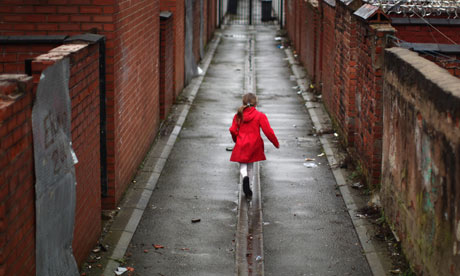
Why taking more children into care can be beneficial
As the number of care referrals reaches a record level, Cafcass chief executive Anthony Douglas explains why this is good news for many children
Parents Against Injustice
As the number of care referrals reaches a record level, Cafcass chief executive Anthony Douglas explains why this is good news for many children


For children, there is no hiding place from damaging parenting. For most of the children coming into care in record numbers, being away from home and from damage is good news. With help, they can recover from trauma and become children again. The best local authorities remove children in desperate situations quickly but also offer structured parenting support to ensure parents have the best possible chance of keeping their next child.
Since the publicity about the Baby P case, local authorities have been intensively reviewing all of their cases. They have re-set their threshold for intervention in case after case, deeming situations they tolerated as chronic low-level neglect as no longer tolerable. Previously, they would often wait for a trigger incident. However, the process was a little arbitrary because often the worst patterns of neglect have no single event.
Incident and event-free neglect is more characterised by a complete absence of parenting, with children cast adrift at home. This is why hardened court professionals say that many of the children they are now seeing in court applications are already far too damaged to be looked after easily. These children need not only love, but also care and often therapy.
The higher number of children under the microscope bring fresh challenges every day to a child care system already stretched close to the limit. The government's changes are helping, particularly the planned reductions in bureaucracy, slimmer guidance manuals and more emphasis on direct work instead of paperwork.
Cafcass and local authorities are slimming down report templates and simplifying assessment frameworks and policies to make the professional task clearer and more realistic. While this will take time, it is going in the right direction. But we need to find twice the current number of good kinship carers, foster carers and adopters. That is our main professional challenge over the next five years.
Not all local authorities are taking more children into care. Many have brilliant specialist family support services that are reducing levels of neglect and increasing levels of positive parenting, against the odds. These pioneering authorities show what can be done with judicious investment in the right programmes. The programmes are expensive, however, so the dilemma is that funding them often means other equally valuable programmes, supporting a much larger number of families, have to be shut down.
Local directors of children's services and lead members for children's services have done well to ensure that neglected and abused children continue to be the top priority for local councils, even at the expense of other more politically popular services. These are brave decisions in populist times. A related development that could help is the transfer of public health responsibilities from the NHS to local authorities in April 2013, because these children are a public health priority.
It is likely the numbers of children being taken into care through the courts will continue to rise for a while yet. We need to understand this trend as reducing the risk of children being the victims of miscarriages of justice, rather than increasing the risk of parents suffering miscarriages of justice. The consequences of more state intervention are profound and it is good this is now becoming the subject of intense public debate. These children need as strong a light as possible shone on their lives.
Anthony Douglas is chief executive of Cafcass
© 2025 Created by Alison J Stevens.
Powered by
![]()
You need to be a member of Parents Against Injustice to add comments!
Join Parents Against Injustice